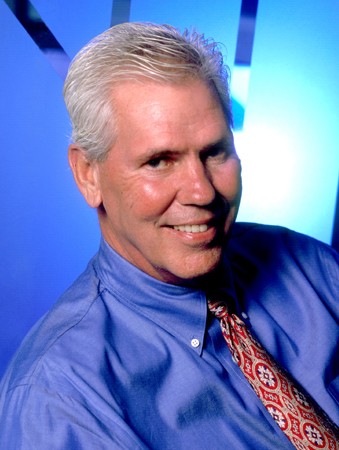The Sidney Kimmel Comprehensive Cancer Center at Johns Hopkins will use a $65 million gift toward the construction of a new patient care building that will be named for the late Albert P. "Skip" Viragh Jr., a Maryland mutual fund investment leader and philanthropist. A pancreas cancer patient treated at Johns Hopkins, Viragh died of the disease in 2003 at age 62.

Image caption: Albert P. "Skip" Viragh Jr.
The Skip Viragh Outpatient Cancer Building is slated for completion in 2017 and will be funded mostly by philanthropic gifts. The facility, to rise on the southeast corner of Fayette Street and North Broadway, will serve as the primary entry point for cancer care on the medical center campus.
"Skip was an innovator in his world of personal finance, and, through his legacy gifts, he continues to partner with Johns Hopkins innovators in cancer care," says William G. Nelson, director of the cancer center and a professor of oncology at the School of Medicine. "The new building will be far more than a place for physician visits and diagnostic scans. It will be the place where we'll explore novel ways to deliver cancer care and cures."
Johns Hopkins currently serves more than 10,000 new cancer patients each year across five sites in Maryland, Nelson says. Outpatient cancer care across the U.S. is anticipated to increase by 35 to 40 percent over the next 10 to 15 years, he adds, underscoring the need for increased space.
The Skip Viragh Building will be able to accommodate all adult medical oncology patient consultations and will house multidisciplinary treatment clinics, modeled on one established for pancreas cancer patients. In the pancreas cancer program, which is named for Viragh, patients undergo a one-day evaluation by all appropriate experts and are given prompt treatment plans.
For patients' convenience, plans call for cancer imaging services to be located in the Skip Viragh Building, as will be a specially designed diagnostic and treatment-planning center where patients will receive coordination of diagnostics for new cancer cases.
"Patients with many different types of cancer will be able to get all of their services in this building, including visits, laboratory testing, clinical trials, radiology, and chemotherapy, greatly increasing the comfort and efficiency of their treatment experience," Nelson says.
The new building will free up space in the Harry and Jeanette Weinberg Building for the expansion of outpatient services, inpatient cancer treatment, and 24-hour oncology urgent care.







